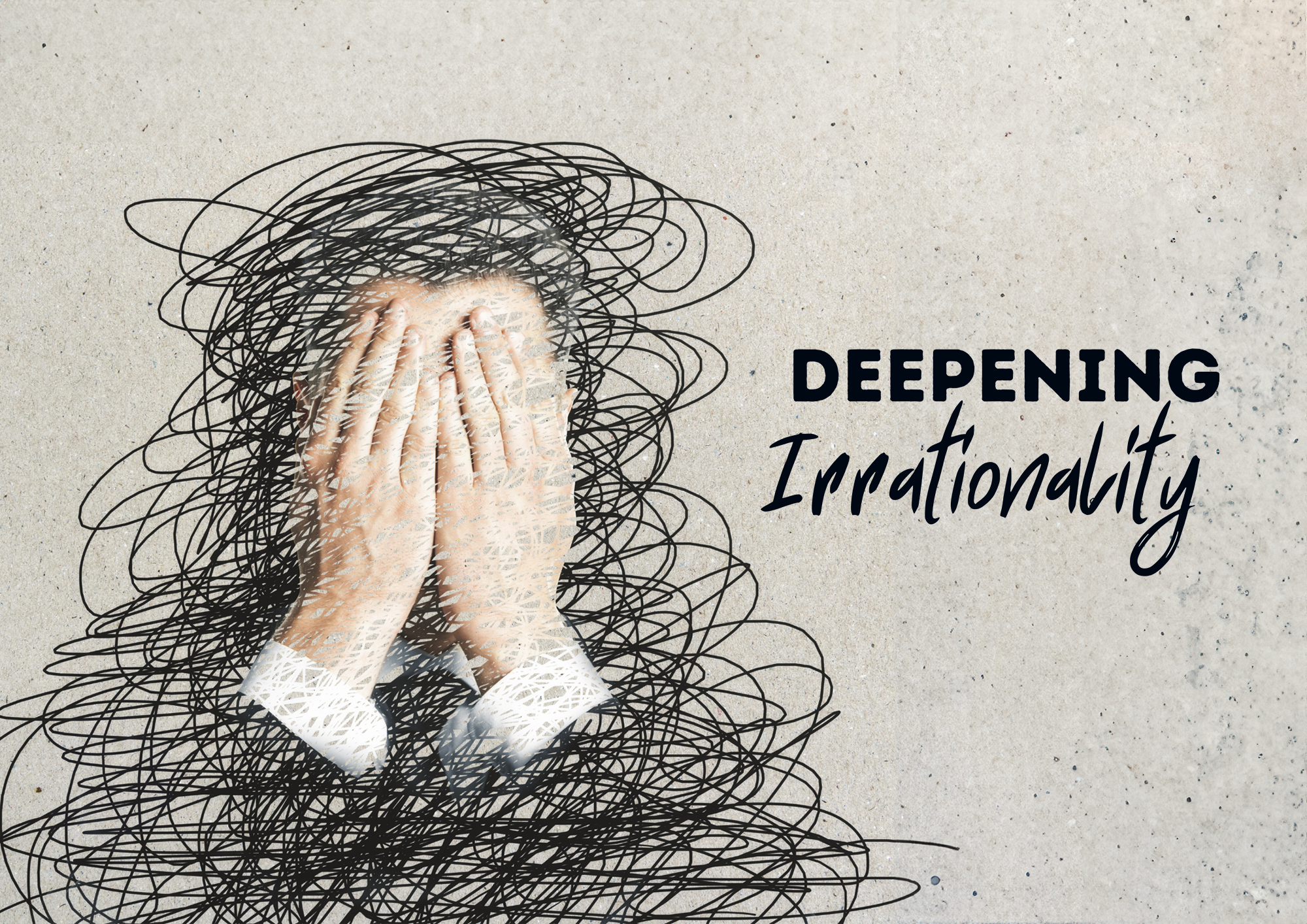Talk 2: A Deepening Irrationality
Eustace Stubbs [1] is a fictional character in C.S. Lewis’ book, The Dawn Treader, from the Chronicles of Narnia. At first, Eustace is portrayed as a proud, self‑centred, arrogant, and whiny boy. He falls asleep on a dead dragon’s hoard and finds that the ‘greedy and dragonish’ thoughts he has in his heart caused him to be changed into a dragon when he wakes up.
In the Old Testament, King Nebuchadnezzar’s pride began in contentment and prosperity, taking credit for everything he had achieved, the beautiful and incredible city of Babylon and the Empire. He saw himself as an absolute monarch who required people to bow down to his image of gold. As a result of his arrogance, Daniel 4: 32 tells us that he would be driven away from people and became like an animal living with the wild animals, eating grass like cattle. His pride to be as god, to be more than human, led to him becoming less than human.
Our western societies are seeking to build a new humanity and a new world without God. As a result of our technological and scientific discoveries, our globally ‑connected world has the means to outshine all previous civilisations. Its salvation song is ‘we are on our own in the universe, so we are our own saviour’. This is the Kingdom without a king. In this context, claims about truth and right and wrong reflect an out‑dated way of living, where people feel imprisoned by the social constructs mediated through families, schools and religion, and need to be set free from God and solid institutions such as marriage and family, and inhibiting categories such as male and female. In this view, there is ‘no essence’ we call human, so young people are encouraged to understand themselves as ‘gender fluid’. Rather than conforming our lives to reality and the truth of what is, our culture says we construct reality. Language is detached from meaning, truth detached from reality and thinking is shaped by desires and appetisers. Authenticity is about identifying as who you feel you are, seeking to impose your structure and order on the world. “The human mind took over God’s role as the law‑giver to creation.” [2]
Idolatry distorts God’s good gifts and so in the culture, we are seeing the death of reason that is leading to a deepening irrationality and absurdity. A heart that is focused on ‘self’ as king leads to darkened thinking and the dehumanisation of the person. The New York Post [3] published an article about a man who spent $15,000 on a high‑tech Collie dog costume to fulfil his lifelong dream of becoming a dog. A clip of the man becoming his own best friend by identifying as a dog, racked up more than 600,000 YouTube views. Pronouns ‘he’ and ‘she’ have been disconnected by some from the biological reality of male and female. In previous generations, these would have been seen as signs of mental disorders and the denial of scientific facts.
How do we help our children and young people break free from this cultural darkness that deeply impacts them and dehumanises them?
Eustace realises he has become a dragon and embraces the truth that he “was a monster and cut off from the whole human race.” [4] When he desired change, Aslan stepped in, saying, “follow me”. [5] Aslan returns him to a human by peeling off his dragon skin and taking him to a spring of living water. Everything from here is growth. The transformation was in meeting Aslan, a picture of Christ, and showing Eustace the way out of darkness. When Nebuchadnezzar honoured the Most- High God as the Almighty Sovereign Lord and humbled himself, his sanity was restored (Daniel 4: 34 – 37). He returned to his right mind and hence to his humanity.
As teachers, we need our hearts to grieve over this worldview that is dehumanising and demeaning our students who are made “a little lower than the heavenly beings and crowned … with glory and honour.” (Psalm 8: 5). Harry Burggraaff highlights the formative purposes of Christian education which shape the desires of students and teachers toward the Kingdom, for the purpose of “shalom, the integrated wholeness, wellbeing and harmony in every dimension of life that God intends for His creation.” [6]
As teachers and schools in this current cultural context, we need to immerse ourselves in the Scriptures to embody and unfold our story through our culture and curriculum. God’s design for humanity and the created order, is redeemed and restored through Christ and is the eternal hope for our students. This returns them to the ancient pathway of life God intended and where our true humanity is restored. Christian truth is the basis for understanding our personhood because God our Creator wrought His rationality into the well‑ordered operations of the universe and our bodies. We try to live against it at our peril. We cannot live faithfully and courageously in our current cultural context unless we indwell the Biblical world. For only in Christ can we be renewed to reflect the image of God. Our world is yearning for a better story that will return us to our senses.
Let us share our story and help our students to taste and see that it is a truly amazing Kingdom with King Jesus on the throne.
Grace and Peace,
The Excellence Centre Team
This is what the Lord says: “Stand at the crossroads and look; ask for the ancient paths, ask where the good way is, and walk in it, and you will find rest for your souls ….” (Jeremiah 6: 16)
[1] C.S. Lewis, Voyage of the Dawn Treader – The Chronicles of Narnia, (New York: HarperCollins, 2008)
[2] Nancy Pearcey, Finding Truth, 5 Principles for Unmasking Atheism, Secularism and Other God Substitutes, (Colorado Springs: David C Cook, 2015), 82
[3] Ben Cost, New York Post, Published 26 May 2022
[4] C.S. Lewis, The Voyage of the Dawn Treader
[5] C.S. Lewis, ibid
[6] Harry Bruggraaf, Transformational Education – A Framework for Christian Teaching, (Mount Evelyn Christian School, 2014) 19

